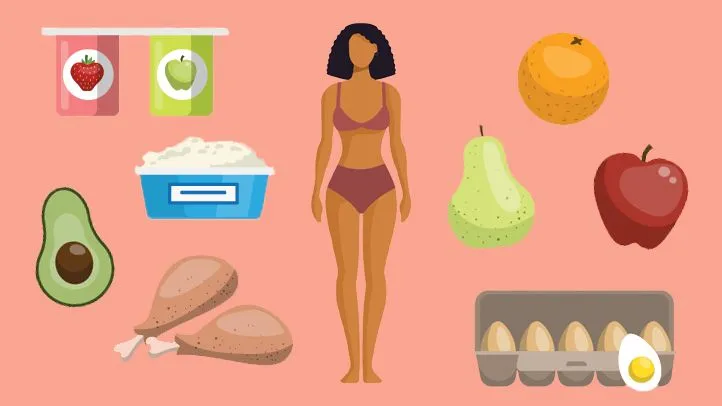In the ever-evolving world of nutrition, one trend that refuses to go away is eating for your “body type.” From social media to pop-up fitness blogs, there’s no shortage of advice telling you what to eat based on whether you’re an ectomorph, mesomorph, or endomorph. But most of that advice is riddled with oversimplified rules and marketing gimmicks.
The truth is, while understanding your body’s natural tendencies can be helpful, your unique nutritional needs go far beyond a one-size-fits-all approach. Instead of rigid rules, the focus should be on science-backed, flexible strategies that support energy, digestion, and long-term wellness. Here’s how to eat for your body type—without falling for the hype.
Understand Your Baseline, Not a Label
The classic body type system—ectomorph (naturally lean), mesomorph (muscular and athletic), and endomorph (curvier, prone to fat storage)—was never designed as a nutritional guide. These types are just one small piece of the puzzle. Factors like genetics, hormones, gut health, sleep quality, and stress levels all play a critical role in how your body processes and uses food.
A gut health dietitian, for instance, would first look at your digestion, microbiome diversity, and inflammation markers before making any recommendations based on appearance alone. Your body type can influence how you respond to certain foods, but it’s not the only thing that matters.
Focus on Bio-Individuality
One of the most important principles in modern nutrition is bio-individuality—the idea that everyone’s body has unique nutritional requirements. This means two people with the same body type could thrive on completely different diets. One might respond well to higher protein, while the other feels best with more complex carbs.
Instead of following a rigid meal plan based on a label, pay attention to how you feel after eating. Track things like energy levels, cravings, digestion, and sleep. This feedback is more valuable than any online quiz.
Build a Foundation of Whole Foods
No matter your body type, the cornerstone of a good diet is nutrient-dense whole foods. Prioritize:
- Lean proteins: Eggs, chicken, lentils, tofu, and fish support muscle and metabolism.
- Complex carbohydrates: Whole grains, beans, and starchy vegetables fuel your brain and workouts.
- Healthy fats: Avocados, olive oil, seeds, and nuts help balance hormones and keep you satisfied.
- Fiber-rich produce: Crucial for gut health, digestion, and reducing inflammation.
A gut health dietitian would emphasize the importance of fiber and fermented foods like kefir, sauerkraut, or miso to feed your microbiome—no matter your body type. A well-functioning gut supports better nutrient absorption and metabolic health, which in turn improves body composition and overall vitality.
Be Mindful of Your Metabolic Needs
Your activity level and muscle mass matter more than body type when it comes to calorie needs. For example:
- Highly active individuals (regardless of being lean or stocky) typically need more carbs and protein to recover and maintain muscle.
- Sedentary lifestyles may require fewer starchy carbs and more focus on protein and fiber to stay full and energized.
Listen to your hunger cues. Don’t restrict entire food groups unless medically necessary. Extreme low-carb or low-fat diets can disrupt hormone balance and digestion—especially if they’re not tailored to your needs.
Bottom Line: Skip the Gimmicks, Listen to Your Body
Eating for your body type doesn’t mean falling into diet traps or subscribing to one “ideal” way to eat. It’s about honoring your unique physiology and staying open to what works for you. Get guidance from professionals like a gut health dietitian who can assess your full health picture—including digestion, nutrient absorption, and lifestyle factors.
By focusing on whole foods, gut health, and individual needs—not fads—you’ll be far better equipped to feel energized, nourished, and in tune with your body. And that’s far more powerful than any label.

